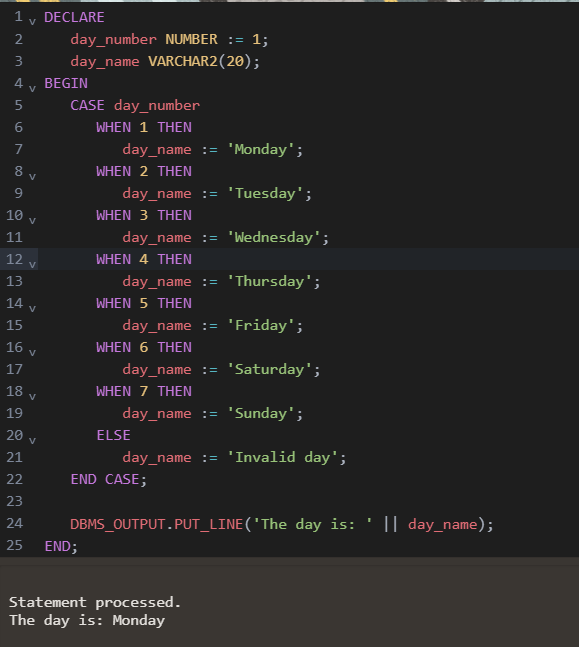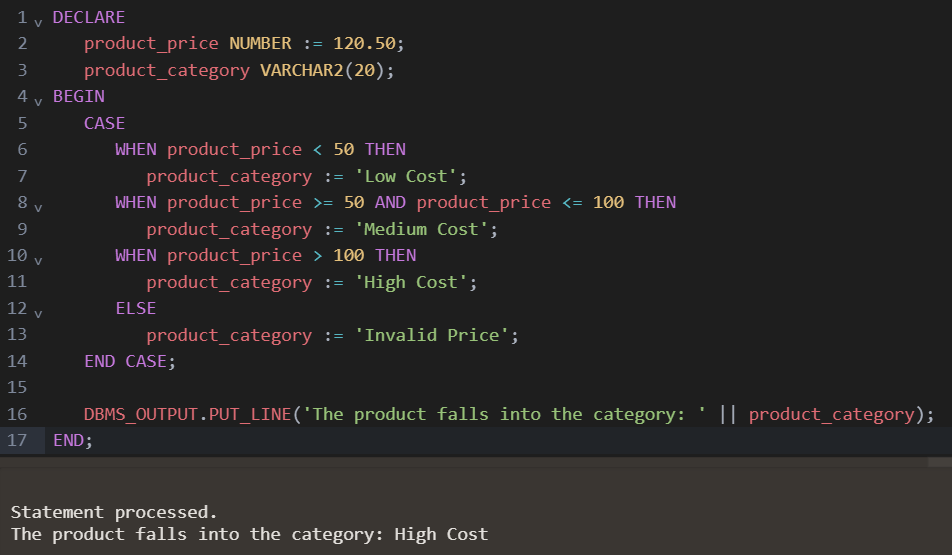
|
|
PL/SQL stands for Procedural Language Extension to the Structured Query Language and it is designed specifically for Oracle databases it extends Structured Query Language (SQL) capabilities by allowing the creation of stored procedures, functions, and triggers. It is a block-structured language that combines SQL with the procedural features of programming languages. In this article, we explore the CASE statement in PL/SQL. It is one of the most powerful conditional logic statements in Oracle databases. We look at the syntax, and types and compare them to the CASE expression. You can use this information to make better decisions and improve your ability to use conditional logic in Oracle PL/SQL. CASE StatementCASE statement gives you a clear way to handle conditional logic within PL/SQL blocks. It is a conditional control statement that allows you to execute different blocks of code based on the specified conditions. It is particularly useful when dealing with multiple conditions and provides a more readable and maintainable alternative to nested IF-ELSE statements. Syntax:
Types of CASE StatementThere are two primary types of CASE statements in PL/SQL: Simple CASE and Searched CASE. Simple CASE StatementIn a Simple CASE statement, the value of an expression is compared to constant values (predefined). It is useful when you want to match a single expression with different constant values. Example: DECLARE In this example,
Output: Statement processed.  simple-case-statement Searched CASE StatementIn a Searched CASE statement each condition is evaluated independently. It allows for more complex conditions such as comparisons, logical operators, and functions. Example: DECLARE In this example,
Output: Statement processed.  searched-case-statement CASE Statement vs CASE Expression
ConclusionPl/SQL is a Procedural Language that is used to write program blocks, procedures, functions, cursors, triggers for databases. It provides a CASE statement feature that is used to handle conditional logic within PL/SQL blocks. CASE statement provides more clear and readable alternative to nested IF-ELSE statements. By efficiently managing branching logic, the CASE statement enhances code clarity and maintainability in PL/SQL programming. |
Reffered: https://www.geeksforgeeks.org
| Databases |
| Related |
|---|
| |
| |
| |
| |
| |
Type: | Geek |
Category: | Coding |
Sub Category: | Tutorial |
Uploaded by: | Admin |
Views: | 14 |